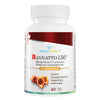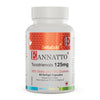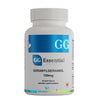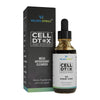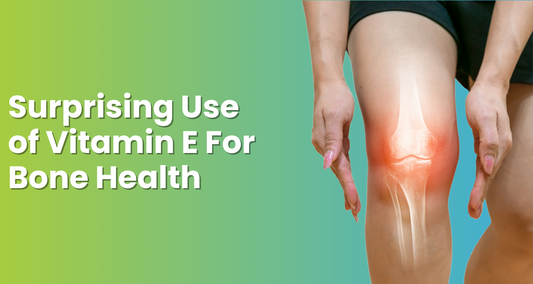When it comes to preparing your post-workout protein shake, one question lingers in the minds of fitness enthusiasts everywhere: should you mix your protein powder with milk or water? The answer may surprise you and challenge common beliefs about the best way to maximize the benefits of protein supplementation.
Protein powder has become a staple in the fitness world, helping individuals meet their protein needs and support muscle repair and growth. However the debate over whether to use protein powder with milk or water as the base has been ongoing. Are you ready to finally discover the truth?
Let’s explore protein powder with milk or water.
Key Takeaways:
- Protein powder with milk or water, can be mixed with either of them.
- The choice between protein powder with milk or water depends on individual preferences, dietary goals, and specific nutritional needs.
- Mixing protein powder with milk provides added creamy texture and can enhance the taste.
- Mixing protein powder with water helps minimize calories and is a preferred option for those looking to manage their weight.
- The best protein powder for you will depend on your goals, dietary restrictions, and personal taste preferences.
Protein Powder Benefits
In this section, we will explore the numerous benefits of using protein powder as a supplement. Whether you're an athlete, fitness enthusiast, or just looking to improve your overall health, protein powder can be a valuable addition to your routine.
Muscle Repair and Growth: One of the main benefits of protein powder is its ability to support muscle repair and growth. When consumed after a workout, protein powder provides the necessary amino acids for the synthesis of new muscle tissue, helping to enhance muscle recovery and promote muscle growth.
Weight Management: Protein powder can also be beneficial for weight management. High-protein diets have been shown to increase satiety, helping to manage overall calorie intake and curb cravings. Incorporating protein powder into your diet can help you feel fuller for longer, making it easier to stick to a calorie-controlled eating plan.
Improved Recovery: Another advantage of protein powder is its ability to enhance recovery. It provides the body with the necessary nutrients to repair damaged tissues and replenish glycogen stores after intense workouts. This can help reduce muscle soreness and improve overall recovery time, allowing you to train more effectively.
There are several types of protein powders available in the market, with whey protein and plant-based protein being the most popular options.
Whey Protein
Whey protein is derived from milk and is considered a complete protein, meaning it contains all nine essential amino acids that the body needs. It is quickly digested and absorbed, making it an excellent option for post-workout recovery. Whey protein is also rich in branched-chain amino acids, which play a crucial role in muscle protein synthesis.
Plant-based Protein
Plant-based protein powders, such as soy, pea, and hemp protein, have gained popularity among individuals following vegetarian, vegan, or dairy-free diets. These protein powders offer similar benefits to whey protein and are often rich in fiber and antioxidants. They may also be suitable for individuals with lactose intolerance or those looking for sustainable and environmentally-friendly options.
In conclusion, protein powder provides a range of benefits, including muscle repair and growth, weight management, and improved recovery. Whether you choose whey protein or plant-based protein powders, incorporating them into your diet can help support your fitness goals and overall well-being.
Types of Protein Powder
In the ever-expanding market of protein supplements, there are various types of protein powder available to cater to different dietary needs and preferences. Let's explore two popular protein powder types: whey protein and plant-based protein powders.
Whey Protein
Derived from milk, whey protein is one of the most commonly used protein powders due to its optimal amino acid profile and high bioavailability. It is rapidly absorbed by the body, making it ideal for post-workout recovery and muscle growth. Whey protein is available in several forms:
- Whey Protein Concentrate (WPC): This versatile protein powder contains lactose and varying concentrations of fat and carbohydrates. It offers a balance between cost and protein content, making it a popular choice among athletes and fitness enthusiasts.
- Whey Protein Isolate (WPI): This form of whey protein undergoes further processing to remove most of the lactose, fats, and carbohydrates. It is more easily digestible and contains a higher protein concentration, making it suitable for those with lactose intolerance or individuals focusing on lean muscle development.
- Whey Protein Hydrolysate (WPH): Considered the most processed form of whey protein, WPH is predigested, ensuring rapid absorption by the body. It is particularly beneficial for individuals with digestion issues or those seeking quick amino acid delivery.
Plant-based Protein Powders
For individuals following a vegan or vegetarian diet, plant-based protein powders offer an excellent alternative to animal-based options. These powders provide a complete amino acid profile and are often rich in fiber and antioxidants. Here are some popular plant-based protein powder options:
- Soy Protein: Derived from soybeans, soy protein is a complete protein source that contains all nine essential amino acids. It is easily digestible and suitable for individuals with dairy or gluten sensitivities.
- Pea Protein: Made from yellow split peas, pea protein is rich in branched-chain amino acids (BCAAs) and is well-tolerated by most individuals. It is often hypoallergenic and easily digestible.
- Hemp Protein: Extracted from hemp seeds, hemp protein is a good source of omega-3 and omega-6 fatty acids. It offers a well-rounded nutritional profile, including essential amino acids, fiber, and minerals.
When selecting a protein powder, consider your dietary preferences, nutritional requirements, and any possible allergies or sensitivities. Experimenting with different types of protein powder can help you find the one that best supports your fitness goals and aligns with your individual needs.
Protein Powder With Milk
Mixing protein powder with milk can offer several benefits and drawbacks. Let's explore why it's a popular choice and how it affects your protein shake's taste, texture, and overall nutritional value.
Benefits of Protein Powder With Milk
When you mix protein powder with milk, you add an extra dose of essential nutrients and flavor. Milk provides high-quality proteins, such as casein and whey, which are easily digestible and help support muscle repair and growth.
- Milk adds a rich and creamy texture to your protein shake, making it more enjoyable to consume.
- It enhances the taste by adding a subtle sweetness and depth that complements various protein powder flavors.
- The combination of protein powder with milk can create a more satisfying and filling shake, which may help curb hunger and support weight management goals.
Drawbacks to Consider
While protein powder with milk offers several advantages, it's important to be aware of potential drawbacks:
- Milk contains lactose, which can be an issue for individuals with lactose intolerance or those following a dairy-free diet. In such cases, alternative milk options like almond, soy, or oat milk can be used.
- Some protein powders may blend better with water than milk, resulting in a smoother consistency.
Choosing the Best Protein Powder With Milk
To achieve the best results when mixing protein powder with milk, it's important to choose the right protein powder. Opt for protein powders that blend well with milk and complement its flavor profile. Whey protein blends, such as those containing whey protein isolate or concentrate, are popular choices that mix smoothly with milk and provide excellent amino acid profiles for muscle recovery.
When selecting protein powders for mixing with milk, consider flavors that pair well with milk's creamy taste. Popular options include chocolate, vanilla, and strawberry. These flavors blend harmoniously, resulting in a delicious and satisfying protein shake.
Experimenting with different protein powders and milk combinations can help you find the perfect mix that suits your taste preferences and fitness goals.
Protein Powder With Water
Mixing protein powder with water is a convenient and effective option, especially for those looking to manage their weight. Here, we will explore the advantages of using water as a base and provide tips on how to achieve a smooth and enjoyable protein shake. We will also recommend the best types of protein powder for this mix.
The Benefits of Mixing Protein Powder with Water
Mixing protein powder with water is a simple and low-calorie way to incorporate protein into your diet. It is an excellent option for individuals who are trying to lose weight or maintain a calorie-controlled diet. When mixed with water, protein powder is easily absorbed by the body, making it ideal for post-workout recovery.
Tips for a Smooth and Enjoyable Protein Shake
- Start by adding a small amount of water to your protein powder and gradually increase the amount until you achieve your desired consistency.
- For a creamier texture, you can use a blender or shaker bottle to mix the protein powder with water.
- Consider adding flavorings such as vanilla extract, cocoa powder, or fruit to enhance the taste of your protein shake.
- Ensure that you thoroughly mix the protein powder and water to avoid any clumps or gritty texture.
Best Types of Protein Powder for Mixing With Water
Certain types of protein powder work particularly well when mixed with water. Whey protein isolate and hydrolyzed whey protein are highly soluble and mix easily with water, providing a smooth and creamy texture. Additionally, plant-based protein powders such as pea protein and rice protein are also suitable options for mixing with water.
When choosing the best protein powder for this mix, look for products that have a clean ingredient list, high protein content, and minimal added sugars or artificial sweeteners. It's important to select a protein powder that aligns with your dietary preferences and goals.
Conclusion
Throughout this article, we have explored the best way to mix protein powder with milk or water. Protein powder is a valuable supplement for individuals looking to support their nutrition and workout recovery goals. Protein powder with milk or water, can be used as bases for protein shakes, each offering unique advantages.
When mixed with milk, protein powder provides additional nutrients, such as calcium and vitamin D, which are beneficial for bone health. It also lends a creamy texture and enhances the flavor of the shake. On the other hand, mixing protein powder with water offers a lower-calorie option, ideal for those who are watching their weight or aiming for post-workout hydration.
When choosing a protein powder, consider your individual goals and dietary needs. Whey protein, derived from milk, is a popular choice for its high bioavailability and fast absorption. Plant-based protein powders, such as soy, pea, and hemp, offer excellent alternatives for those with lactose intolerance or following a vegan or vegetarian diet.
To achieve the best results, it's important to mix protein powder properly, and understanding how to use protein powder with milk or water is crucial. Experiment with different flavors and ratios to find your preferred taste. Remember to consult a healthcare professional or registered dietitian for personalized guidance and recommendations based on your specific needs and goals for protein powder with milk or water.
FAQs
Should I take protein powder with milk or water?
Yes, protein powder can be mixed with both milk or water. The choice depends on personal preference, dietary needs, and fitness goals.
What is the best protein powder to use?
The best protein powder to use depends on individual goals and dietary restrictions. Whey protein is a popular choice for muscle growth, while plant-based protein powders like soy, pea, and hemp are suitable for vegetarians and vegans.
How do I use protein powder with milk or water?
To use protein powder with milk, simply mix it into a glass of milk or blend it with milk in a shake. To use protein powder with water, mix it into a glass of water or shake it in a bottle until fully dissolved.
What are the benefits of protein powder?
Protein powder provides numerous benefits, including muscle repair and growth, increased satiety, improved recovery, and support for weight management goals.
Should I mix protein powder with milk or water for weight loss?
Mixing protein powder for weight loss with water is often recommended. Water is calorie-free, making it a lower-calorie option compared to milk.
Does mixing protein powder with milk or water affect its nutritional value?
Mixing protein powder with milk adds additional calories, protein, and nutrients from the milk. Mixing with water, on the other hand, has a minimal effect on the overall nutritional value of the protein powder.
What are the different types of protein powder available?
The different types of protein powder available include whey protein, casein protein, soy protein, pea protein, and hemp protein. Each type has its own unique nutritional profile and benefits.
Can protein powder be used for weight loss?
Yes, protein powder can be used for weight loss. It helps increase satiety, preserves lean muscle mass, and supports a calorie deficit for effective weight management.
